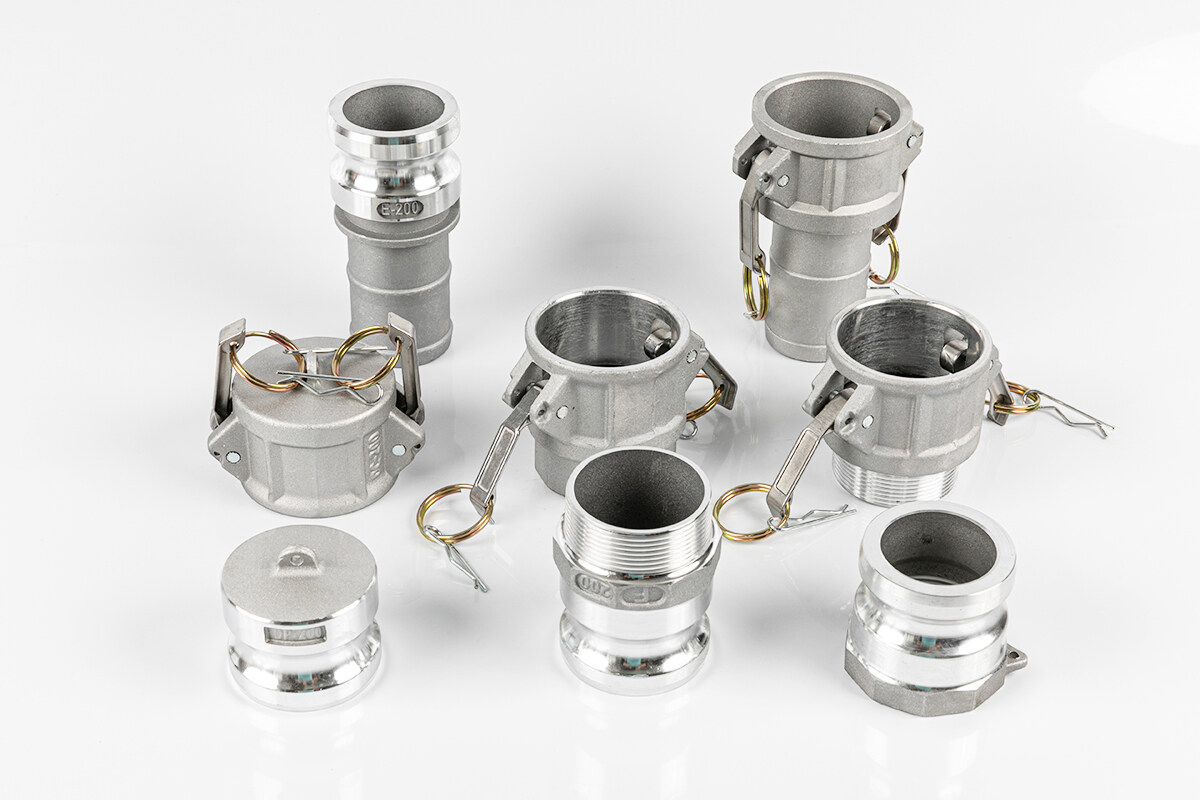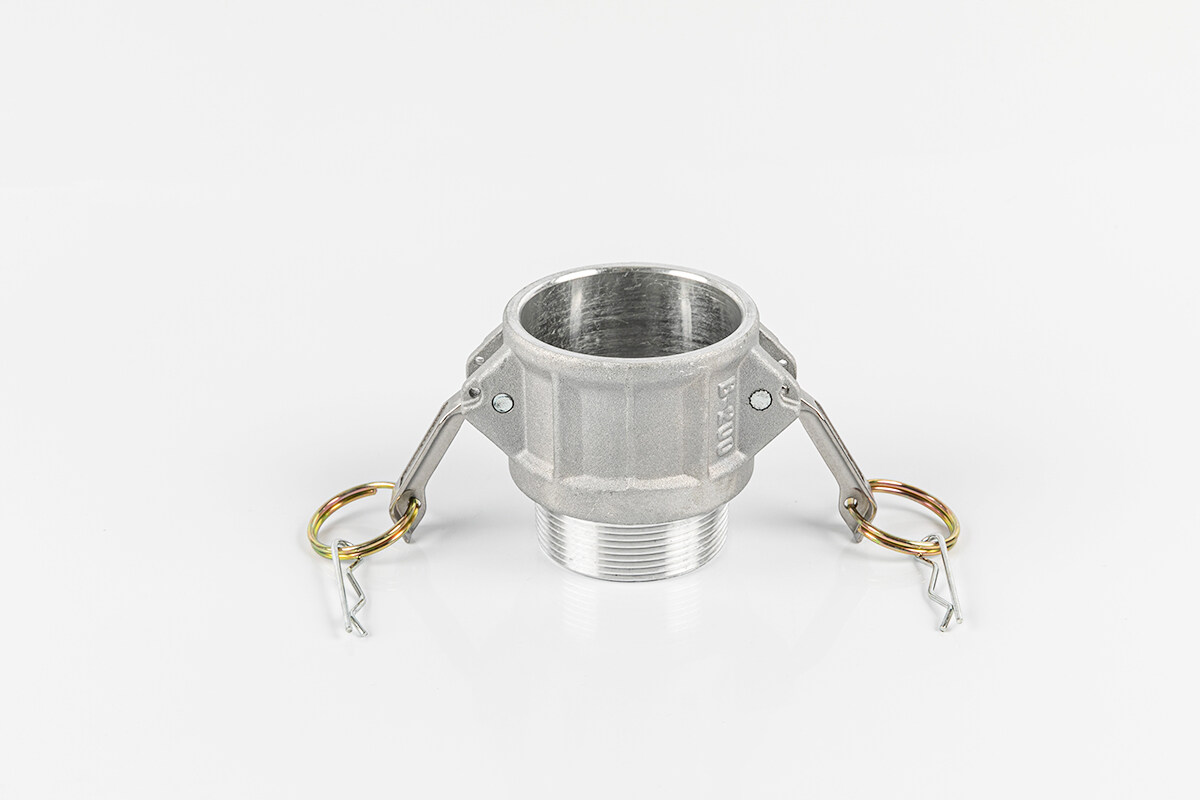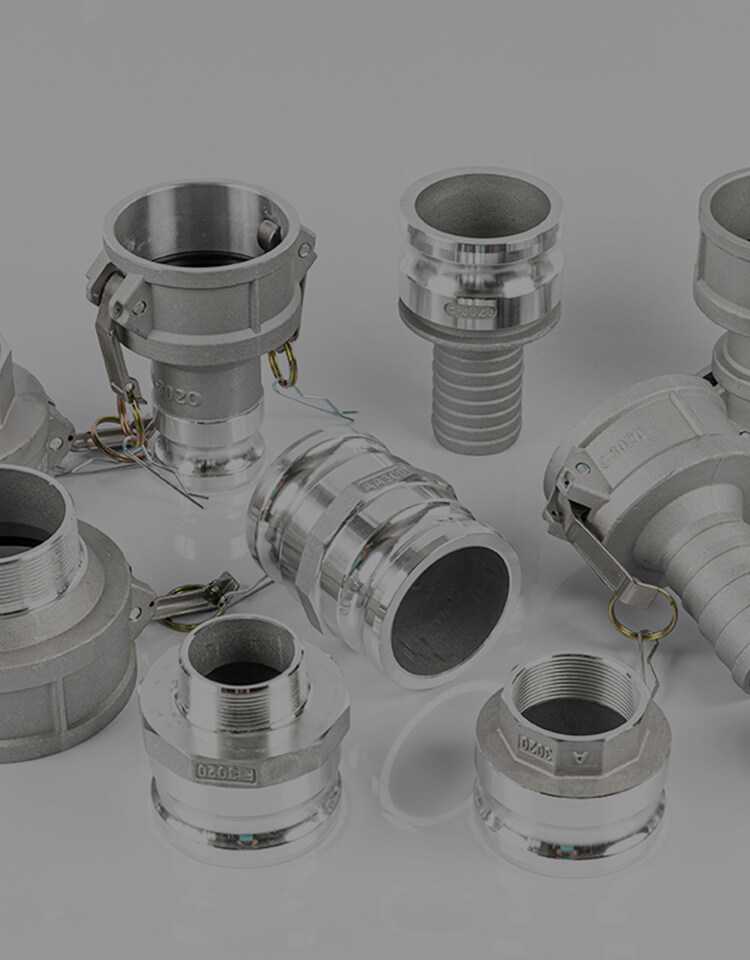Erreur de format d'e-mail
emailCannotEmpty
emailDoesExist
pwdLetterLimtTip
inconsistentPwd
pwdLetterLimtTip
inconsistentPwd

Nouvelles
Ici, vous pouvez décrire un morceau de texte que vous souhaitez exprimer

Unlocking the Versatility of Aluminum Couplers
In the world of fluid and mechanical systems, the use of couplers is paramount. One such component that has gained immense popularity is the aluminum coupler. In this comprehensive blog, we will dive deep into the realm of aluminum couplers, exploring their types, applications, and the advantages they offer in various industries. We will also discuss key terms such as the aluminum flex shaft coupler, aluminum quick coupler, and camlock couplings supplier, revealing how these components play essential roles in ensuring efficient fluid transfer and mechanical operations.
Understanding Aluminum Couplers
What is an Aluminum Coupler?
An aluminum coupler is a mechanical device designed to connect two shafts, pipes, or hoses together, allowing them to transmit power, fluids, or materials seamlessly. These couplers are engineered with precision and are known for their strength, durability, and versatility. They find applications in a wide range of industries and are available in various types and designs.
Types of Aluminum Couplers
-
Aluminum Flex Shaft Coupler
Flexible Connection: Aluminum flex shaft couplers are designed to provide a flexible connection between two shafts. They can compensate for misalignment, vibration, and shock loads, making them invaluable in applications like machinery, robotics, and industrial equipment.
Applications:
- Robotics and automation systems.
- CNC machinery.
- High-speed precision equipment.
Features:
- Flexibility to accommodate misalignment.
- Dampening of vibration and shock loads.
- High torque transmission.
-
Aluminum Quick Coupler
Swift Connection: Aluminum quick couplers, as the name suggests, are engineered for rapid and secure connections. They are widely used in pneumatic and hydraulic systems, enabling quick changes and easy maintenance.
Applications:
- Pneumatic tools.
- Hydraulic systems.
- Industrial machinery.
Features:
- Push-to-connect or twist-to-connect designs.
- Leak-free connections.
- Durable and lightweight.
Advantages of Aluminum Couplers
Aluminum couplers offer a range of advantages that make them a preferred choice in various industries:
1. Lightweight and Durable
Aluminum is well-known for its lightweight yet robust characteristics. This combination makes aluminum couplers easy to handle while ensuring longevity and reliability in a variety of applications.
2. Corrosion Resistance
They exhibit excellent resistance to corrosion, which is particularly important in applications where exposure to moisture or corrosive substances is a concern.
3. High Torque Transmission
Whether it's transmitting power between shafts or connecting hoses in high-pressure systems, they are designed to withstand high torque, ensuring efficient and dependable performance.
4. Versatility
They are available in a variety of designs, including flex shaft couplers and quick couplers, making them adaptable to diverse applications.
5. Ease of Installation
Many aluminum couplers are designed for simple and hassle-free installation, reducing downtime during maintenance or system setup.
Applications of Aluminum Couplers
Aluminum couplers play a crucial role in several industries, and their versatility allows them to be used in a wide range of applications. Let's explore some of these industries and how aluminum couplers contribute to their operations.
1. Manufacturing and Automation
-
In manufacturing, aluminum flex shaft couplers are commonly used in robotics and automation systems to transmit power and motion, allowing precise and rapid movements.
-
Quick couplers find applications in pneumatic and hydraulic systems, making it easier for operators to connect and disconnect various tools and components.
2. Aerospace
- In the aerospace industry, the lightweight nature of aluminum couplers is advantageous. They are used in critical applications such as control systems and landing gear mechanisms.
3. Marine
- Aluminum couplers are ideal for marine applications due to their corrosion resistance. They are used in hydraulic and water systems on ships and boats.
4. Construction and Heavy Machinery
- Quick couplers are used in the construction industry to connect various hydraulic attachments on heavy machinery, allowing for efficient equipment changes on job sites.
5. Agriculture
- In agricultural equipment, aluminum couplers are utilized in hydraulic systems for tractors and other machinery, enabling precise control of implements.
6. Oil and Gas
- Quick couplers are essential for the oil and gas industry, where rapid and secure connections are crucial for maintaining pipelines and equipment.
Choosing the Right Aluminum Coupler
Selecting the appropriate aluminum coupler for your specific application is essential to ensure optimal performance and efficiency. Consider the following factors:
-
Type of Application: Determine whether you need a flex shaft coupler or a quick coupler based on your application's requirements.
-
Material Compatibility: Ensure that the aluminum coupler is compatible with the materials it will connect. Consider factors like temperature, pressure, and chemical compatibility.
-
Size and Torque Requirements: Choose the right size and torque rating to handle the loads and forces in your application.
-
Ease of Maintenance: If you require quick and easy maintenance, opt for couplers that offer tool-free or rapid connection and disconnection.
Maintenance and Care
Proper maintenance is essential to prolong the life of your aluminum couplers and ensure they operate efficiently. Here are some maintenance tips:
-
Regular Inspection: Periodically inspect your couplers for signs of wear, damage, or corrosion. Replace any components showing visible signs of deterioration.
-
Lubrication: Apply the appropriate lubricant to ensure smooth and efficient operation, especially in high-torque applications.
-
Cleaning: Keep your couplers clean, free from debris, and properly sealed to prevent contamination or leaks.
-
Storage: When not in use, store aluminum couplers in a clean, dry environment to prevent corrosion or damage.
Troubleshooting Common Issues
Even with proper maintenance, issues with aluminum couplers can arise. Understanding how to troubleshoot and resolve these issues is crucial for uninterrupted operations.
1. Leakage
-
Causes: Leakage may occur due to damaged seals or gaskets, loose connections, or improperly sealed threads.
-
Solutions: Check and replace seals or gaskets as needed, tighten connections without over-tightening, and ensure threads are properly sealed.
2. Misalignment
-
Causes: Misalignment issues can occur due to improper installation or a lack of flexibility in the coupler.
-
Solutions: Reinstall the coupler correctly, and in the case of a flex shaft coupler, ensure it's designed to accommodate misalignment.
3. Corrosion
-
Causes: Corrosion may occur in harsh environments or when incompatible materials are used.
-
Solutions: Regularly inspect for corrosion, use materials resistant to corrosion, and apply anti-corrosion measures.

Conclusion
Aluminum couplers are unsung heroes in the world of fluid and mechanical systems, providing the strength, versatility, and durability needed to connect components efficiently and securely. Whether it's a flex shaft coupler in a robotic arm or a quick coupler in a hydraulic system, these components are instrumental in various industries, contributing to smoother operations and increased productivity.
By understanding the types, advantages, applications, and maintenance requirements of aluminum couplers, you can make informed decisions when selecting and utilizing these crucial components. With the right choice and proper care.

